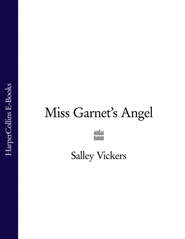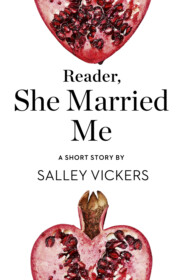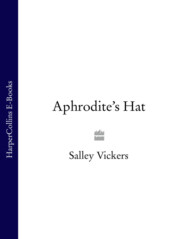По всем вопросам обращайтесь на: info@litportal.ru
(©) 2003-2024.
✖
Mr Golightly’s Holiday
Автор
Год написания книги
2018
Настройки чтения
Размер шрифта
Высота строк
Поля
He opened a file, as Mike had shown him, and ‘saved’ it as ‘THLI’. Then, typing slowly, he spelled out ‘Cast of Characters’ and paused, debating whether that didn’t belong better in a file marked ‘Prelims’ – a piece of technical advice about organising his material which he had picked up at the office, from Muriel in Accounts.
Muriel was less in the forefront of office affairs than Mike, or Bill. She was a retiring soul, who kept herself to herself, but she’d been part of the firm since its inception. Muriel had a capacious memory. If Mr Golightly wasn’t one hundred per cent sure how a word was spelled, he would check with Muriel. Thinking of her, he remembered he must rescue his Oxford English Dictionary, which he had jammed under the passenger seat of the Traveller. Bill had suggested that Mike could load on to the laptop a CD-ROM of the OED, which would apparently furnish every word in the English language anyone could wish to check. But in Mr Golightly’s view, a computer screen was no substitute for a solid book you could get your hands around. It was his habit to read the dictionary in bed, an activity which he suspected neither Mike nor Bill would fully understand. Slightly evasively – he didn’t like to have to defend his preferences – he had stuffed the two volumes of the Shorter OED into the Traveller at the last moment of departure.
The office could tell you that when the boss got his dander up he could spit fire and hailstones, but these days, for the most part, Mr Golightly was a pacific sort and his inner state was reflected in his physical movements. Johnny Spence, who from years of cohabiting with his stepdad could detect a human tread quicker than any cat, only saw Mr Golightly as he came round the side of the cottage. Johnny shot under the Traveller and lay pulling the hood of his baggy top well over his face.
Mr Golightly stood for some minutes by the open car door, straightening out a dog-ear from a page of Vol. II Marl–Z. As he did so he whistled. He was senior enough to have tuned in regularly to a radio programme, Whistle While You Work, on the old BBC Light, and the injunction had infiltrated his habits.
Johnny Spence, crammed under the van, heard the bars from Fidelio and was strangely reassured. He was not familiar with Beethoven’s single opera, but those who fight for freedom are joined by more than temporal bonds and Johnny perhaps recognised, in the long-departed composer’s music, a theme in tune with his own revolutionary aims.
Mr Golightly had finished smoothing out the crumpled page and, still whistling, paused a while longer to read the definition of a word he had forgotten. His memory, once capacious, had been playing up lately. He had disguised this from the office, but there were times when he found himself suffering worrying blanks and lapses when he couldn’t find a familiar word or place a name. But, he comforted himself, even the most efficient memory cannot retain everything and a less than perfect memory had benefits. It lessened the likelihood of grudge bearing. A tendency to bear grudges was a habit which, when he encountered it, embarrassed Mr Golightly; it reminded him too much of former times.
Johnny Spence lay dead still under the van. The old bloke hadn’t moved off – from where he was lying he could see his shoes, the kind with little holes in the toes, scuffed but posh leather. He needed a pee – what the fuck was the old bastard doing just standing there?
Mr Golightly’s attention had been caught by a word on the crumpled page of the dictionary: ‘uberty’, pronounced, as he now read, like ‘puberty’, it meant full of bounteous kindness, a state which he was disposed to approve of. Here was another forgotten joy of authorship: the chance to stow away a likely-looking word and make occasion to use it. A pity that the word was too obscure for his soap opera. Bill and Mike were too respectful to let it slip, but he had picked up from Martha, whose pronouncements tended less towards ‘uberty’, that the language of his original work was considered antiquated and abstruse.
For all the forgetfulness, Mr Golightly’s mind still ran easily on parallel lines, and as he mused on the perils of authorship he wondered what to do about the young boy in the hooded garment hidden under the Traveller.
His first instinct on seeing Johnny duck under the van’s carriage had been to ignore him. Latterly, live and let live was one of his mottoes, and if the boy wanted to make the Morris a hiding place it was nothing to him. But a flashing impression of the face, as it dived beneath the van, had affected him. It brought to mind another boy child, so grippingly that he couldn’t tear himself away to return to the laptop.
Although he liked to think of himself as essentially creative, it was in fact many years since Mr Golightly had tried to put his ideas into effect. Perhaps he felt a certain forbidding fear at re-embarking on this insecure enterprise. Or perhaps it was the memory evoked by Johnny Spence which made him say, ‘I wonder whether you’d care for some refreshment?’
Johnny Spence did not at first take these words as meant for him. Without an introduction, Mr Golightly had adopted an over-formal mode of address. Hearing himself, he adjusted his style.
‘Hey, you, boy under the car, fancy a Coke?’
This was spoken in a tone which made Johnny shoot out from under the Traveller before he was aware of what he was doing. He lay on the ground, half on his side, squinnying up at Mr Golightly. Sure as fuck the old guy would hand him over to his stepdad, or the social services.
The sun which had gone behind a cloud reappeared at this moment and casually dropped a ray upon the little earth, transfiguring the upturned face of young Johnny Spence. Mr Golightly swallowed hard and held out a hand.
‘There’s Coke in the fridge. If you want biscuits one of us’ll have to go up to the shop.’
‘Not me,’ said Johnny Spence. Ignoring the hand he got to his feet. Whatever was going on he wasn’t going to show himself out of school time to that Steve Meadows at the post office, thank you very much!
‘Well, if you can manage without…’ It had been Mr Golightly’s theory that the modern child only ate biscuits; but there was bread and Marmite and the Frank Cooper’s marmalade if the boy was hungry. With his still outstretched hand, he touched the boy lightly on his shoulder. ‘Come along inside, why don’t you?’ he suggested.
7 (#ulink_6194d5a2-118b-5953-84c6-43cbc05d1e18)
ON THE OPPOSITE SIDE OF THE STREET TO Spring Cottage, set back from the road and fronted by an ugly, untended garden, was a long low building which bore a painted sun-peeled sign, nutkin’s tearooms. This, despite a further legend which promised ‘Full Devon Cream Teas’, was well on the way to becoming derelict. In fact, the only takers for teas now, cream or any kind, were the brown rats whose scampering depredations had so scared Paula’s mum that she had had to give up her little cleaning job, while those who owned it made up their minds what they were going to do with the blamed place! In the past, the tearooms had provided a useful, if limited, source of income for those residents of Great Calne who were neither retired nor living on social security and consequently barred from able-bodied work. During the holiday season, coachloads of tourists had visited regularly and the people of Great Calne had themselves liked to take an occasional light snack there when the services offered extended to a soup and salad luncheon with choice of white or brown ‘fresh-baked’ bread rolls (delivered twice weekly from Bunn’s Bakery, in nearby Oakburton).
In those days the tearooms had been run by Patsy and Joanne, a lesbian couple of the old school. They had left Great Calne after there had been talk that Patsy had made a pass at Nicky Pope’s daughter Tessa. Tessa was known to be fanciful, and feeling among the village – after the departure of the two women, who in their quiet way were popular – ran high. It was felt by some that justice would have been better served if Tessa Pope, rather than being offered counselling by the lady vicar, had been smacked hard for her lying ways.
The tearooms were bought by a retired couple from London, Hugh and Heather Wright, who also took over the name of ‘Nutkins’ for their house at the top of the village. But after Heather ran off with a lecturer in medieval social history – he had come to do research on vanished villages of Dartmoor and vanished instead with Mrs ‘Nutkin’ – Hugh had found consolation with Morning Claxon, a practitioner in crystal healing. A committed campaigner for health foods, she had turned Hugh against cream – indeed against cholesterol of any kind.
Among the residents of Great Calne, ‘Morning’ was not a name which inspired confidence. The example of Patsy and Joanne had induced tolerance of homosexuality – indeed, sexual proclivities of most varieties were generally accepted – but the village was inclined to be mistrustful of anything ‘hippie’. A name like ‘Morning’ didn’t command sympathy. It had been the devil of a job to get those long-haired squatters out of the rectory, when it was empty all that time after Rector Malcolm died of Parkinson’s. The lager cans and quantities of roll-up butts had become local legend. Morning’s plans to turn the tearooms into an alternative health clinic had attracted suspicion rather than support. And there was the question of the car park, which butted on to Sam Noble’s garden.
The tearooms car park was placed, somewhat anomalously, up the hill and across the road from the tearooms. It stood behind the village hall bearing a sign TEAROOMS PARKING only and was mostly used by the children of Great Calne when learning to ride their bikes. Sam, a man who read both the Guardian and the Daily Telegraph and was well versed in his rights, was adamant that an alternative health centre would bring unacceptable noise levels to the proximity of his bedroom.
A meeting of the parish council had been called at which Morning had spoken, passionately, of the benefits of Indian head massage. Not properly a resident – she only came down for weekends, when she had Hugh Wright out in the garden all day, getting a dig, people said, at the old wife by having him unearth all the shrubs she had planted – her right to speak was questioned and her words did not carry weight.
The car park was, in fact, a prime building site. It was Sam’s nightmare that a speculator would buy it and try to engineer a profitable development. While planning permission in the area was granted rarely, there was nothing, Sam knew, that money couldn’t buy. That Indian massage woman was flaky. Even if she had no plans for developing the car park herself, a speculator could easily get hold of her, cross a few palms with silver and then where would their peace and quiet be? No, by far the best plan would be for the village collectively to buy back the tearooms from Hugh Wright; then Sam could oversee the car park.
To this end, Sam had run a cost-benefit analysis which he had printed out on his computer. He proposed to call on all the village personally and drum up support.
The Morris Traveller was parked in the front when Sam called on Spring Cottage and banged on the door with the flat of his hand. There was no bell or knocker; when Emily Pope had lived there folk always went round the back; but the new tenant had not been installed long enough for proprieties to be dispensed with.
Johnny Spence was on his second can of Coke when Sam knocked and Johnny’s reaction was to look for a place to hide. There was a cupboard under the stairs but his eye had hardly found it before Mr Golightly laid a hand again on his shoulder. Placing a finger to his lips, he mouthed conspiratorially, ‘Wait there!’
Johnny found himself obeying his host who walked with his peculiar silent tread to the hallway.
Opening the front door took a bit of shoving: the door was used infrequently, and the wood had swollen in the winter damp so that in opening it Mr Golightly almost staggered into the man standing outside.
‘Morning there. Sam Noble – we met the other evening up at the Stag.’
A hand was being proffered, but Mr Golightly was annoyed at having his conversation with Johnny interrupted and his response was lukewarm.
‘Yes?’
He hoped this visit would not form a precedent. He must be careful not to convey an impression that Spring Cottage was a home for social chit-chat.
‘Pleased to meet you again. I’m calling about the tearooms.’
‘The tearooms?’ Mr Golightly’s face was a disobliging blank. Tea gave him a headache – he rarely touched the stuff.
‘All here,’ said Sam, ‘cost-benefit analysis.’ He slapped a furled bundle of papers on the palm of his hand. ‘Scheme for the village. I’d be glad of your views.’
‘Ah, yes,’ said Mr Golightly, ambiguously. It was to escape the affairs of the world that he had come to Great Calne. The last thing he wanted was to be involved in local politics – indeed, politics of any kind.
Johnny Spence, after an initial obedience to Mr Golightly’s directive, had nipped up to the bedroom to check it out. The room didn’t look like a perve’s. Not that Johnny specially cared. That jerk who slept in the caravan all last summer, up in the parking place on the edge of the moor by old Lavinia Galsworthy’s house where you weren’t supposed to park, had tried something on him and Johnny had kneed him in the balls. If this bloke had any ideas Johnny was prepared. But somehow he didn’t give off that kind of feeling.
Mr Golightly’s employees could have told Johnny that to pry undiscovered was a lost cause. The boss had supersubtle powers of observation. It was said that their business rival had once, long ago, worked for him and got himself sacked that way; on the other hand, there were rumours they had fallen out over some woman. Those who knew the boss felt that this last was unlikely – certainly the idea of some inexcusable interference fitted the picture better. When Martha had once, quite innocently, moved some of his archaeological specimens to give them a thorough clean, she had received a dressing down which had led to bad feeling for several weeks. Since then, the boss had tidied his own desk, which, as Martha said, behind his back, meant those nasty old stones, dating back from God knew when, merely gathered more and more dust, which was murder for her asthma.
Mr Golightly, having seen Sam off, looked in the direction of the stairs. If he sensed Johnny’s investigations – and it would be hard to see how he could – he must have decided not to mention it since he merely said, ‘Is there anything I can do for you, before you go?’
The idea of leaving made Johnny’s stomach lurch, like when his mum had gone in for her operation and he’d had to sleep on the sofa over at his Auntie Jean’s. Not that Jean was really his ‘auntie’: she was his mum’s friend from when he was a kid and he and his mum and Auntie Jean lived together over Plymouth way. That time, when his mum was in the hospital, Uncle Glenn, his Auntie Jean’s live-in boyfriend, had driven Johnny in his convertible to see her.
‘Can I have a go in your car?’
Mr Golightly inwardly sighed. What about his writing schedule? But the boy’s hazel eyes looked at him with frank beseechment.
A dart of pain touched Mr Golightly in the upper quarter of his left ribcage. Subduing irritation, he said, ‘Well, we can’t go far but…maybe you could direct me to the nearest place for decent shopping?’
That was easy. Oakburton was three miles down the road and full of all the supermarkets and wine stores anyone could desire. Under Johnny’s guidance, they reached Oakburton in remarkable time, given the age of the Traveller, and soon Johnny was guiding his new acquaintance round Somerfields.
Not that any of the foodstuffs seemed to have had much to do with fields, or with summer, Mr Golightly observed to himself. He bought a plastic bag of seedy-looking potatoes, some tins of tomatoes on special offer (four for the price of three), lavatory paper, kitchen roll, and a kitchen cleanser called Mr Muscle, a name which took his fancy. When they got to the till Johnny, who had been dragging round behind, surprised him.
‘Seven pound ninety-four.’
‘Seven ninety-four,’ the cashier, with bored inattention, repeated a second later.











